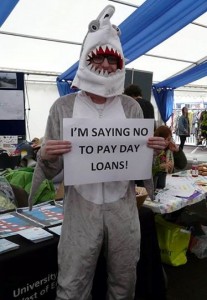
As the cost of living crisis continues to hit students, it’s crucial that we keep pressuring the powers that be
When I’ve worked part time whilst being a student I’ve generally heard two things on the subject. The first was a series of jokes on how I’m going to spend the money on drinking. The second was a general “well done you” attitude, the idea that because I have had to work to keep myself in education I deserve some sort of reward or that I’m different or better than those who don’t. This often came from other students who worked.
The truth is that students are struggling financially and the cost of living is increasing, particularly for students in Bristol. According to figures released in 2014 by the Bristol Post, our city is the most expensive place to live in the UK outside of London and the South East, with rent being the biggest expenditure.
Money ties into everything we do as students. If you are worried about getting another shift because you are on a zero-hours contract, or you are forced to take a shift the night before a deadline, then your coursework is going to suffer.
If, like almost a fifth of students, you are working over 20 hours a week (whilst on a course described as full time) then you’ll have little time to take part in extracurricular activities like a society, sports club or network, which, as we are told time and time again, is the key to employability and actually getting a job after you graduate.
It’s really bad that for many students the only option is to stay on campus for as long as possible because you can’t afford to turn up the thermostat. There is plenty of research that shows that students who are in financial difficulty are more likely to drop out of university. This is even worse for NHS and Post grad students who aren’t eligible for the same support that is available for full time undergraduate students.
If because of all this you’d think the government and the university would want to support students financially, but you’d be wrong. Their reaction is to cut the Access to Learning Fund nationally and reduce the number of bursaries at UWE that students receive. UWE’s Vice Chancellor even signed a statement calling for fees to be kept at £9k.
The result is that students will turn to Payday Lenders (who target students specifically) where the extremely high rates of interest only puts students into more debt. I’ve also found that there’s a culture where students who work are seen as “better” or “more able” than those who don’t or can’t, this only divides us and shifts the blame from those who have put us in this situation.
What needs to happen now? We all need to ensure our Students’ Unions are loudly and publicly working and campaigning against the cuts to support for students financially. We need to ensure that the NUS is working for a funding system that actually works for students.
We need to make sure that universities and the government are aware that we will no longer put up with cuts to support, or a culture of blaming students for being in the situation we’ve been put in. We need to shift the perception of students as spending all of their money on booze and fags and show the harsh reality of the financial struggle endured to get an education.
How do we achieve this? If you are like I was in my first year, you might not feel like a part of the student movement. But you are. From doing something as simple as talking to your course mates, writing to your university or MP and sharing articles online, or even organising a grassroots campaign – we can force them to listen.
Together we were able to postpone the cuts to Disabled Students’ Allowance but we need to ensure that universities are supporting all students especially those where the support is most needed, like (but not limited to) post-grad students, student parents and NHS supported students.
By Will Anderson

UWE Society Promotion – The Failure of the Refreshers Model
CORBYN’S COMING
Primer: Politics at UWE
“Appreciate your freedom of speech or millions of Bulgarians will come and take it”